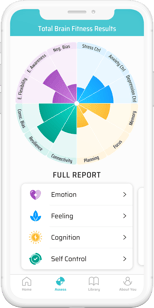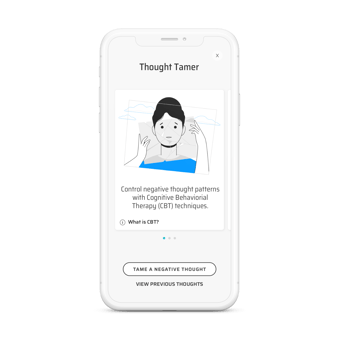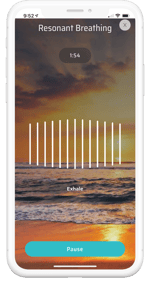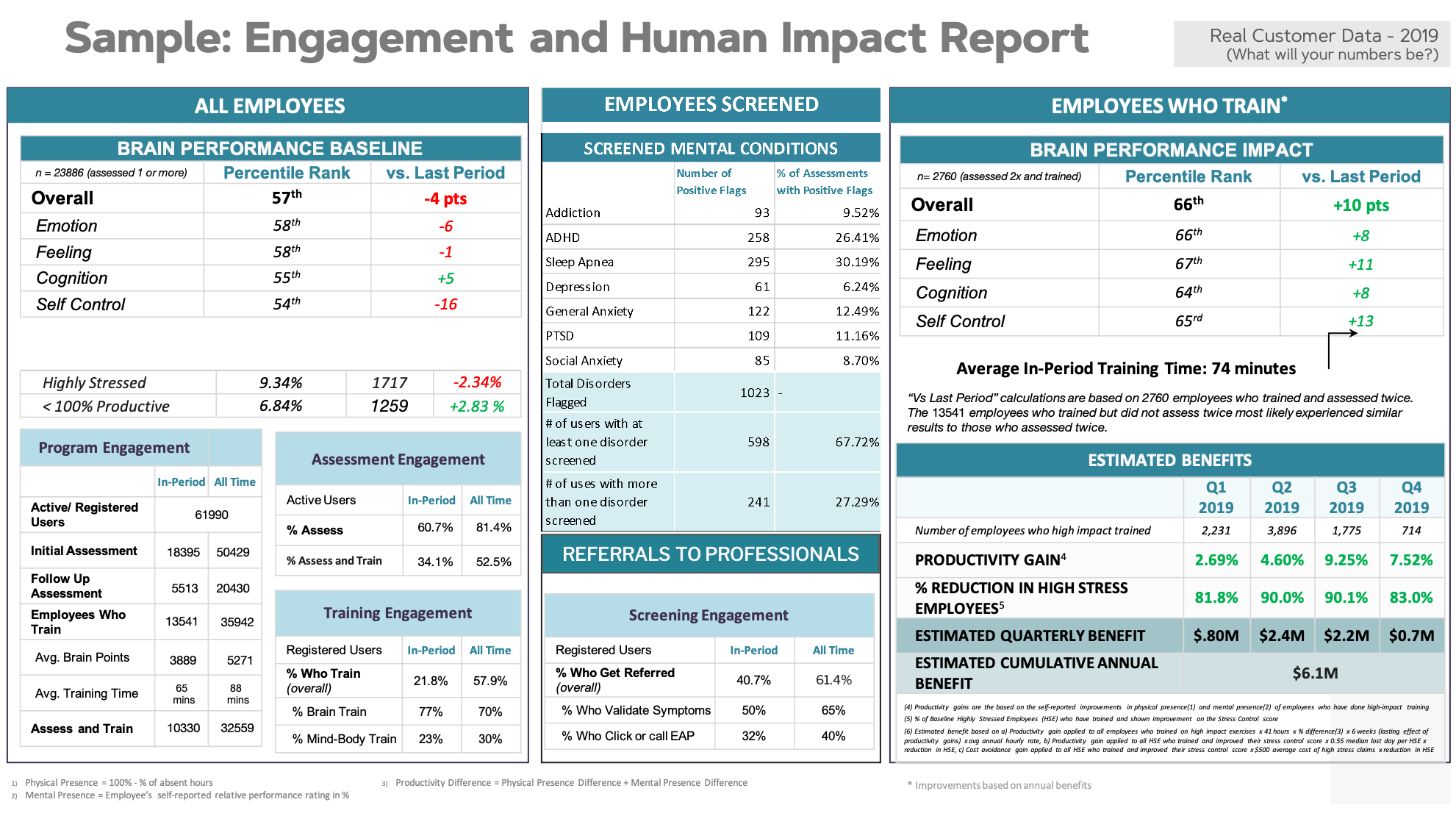By Melissa Frieswick on Mon, Mar 29, 2021
By all measures, substance use is up among U.S. workers. Elevated stress and anxiety have led to increased drinking and drug use, including on the job. At the same time, COVID-19 has removed many of the coping measures and support systems people use to aid recovery and manage cravings.
- Many support groups and 12-step programs are on hold or meeting only remotely.
- Gyms, which offer stress relief and boost wellness, remain shuttered across most of the nation.
- Churches, clubs and other social opportunities remain distanced, removing opportunities for community and accountability.
To fill the gap, many companies have relied on self-help solutions, like Total Brain, to enable employees to access support and services remotely. Our platform combines a comprehensive mental health assessment, with customized self-care tools to help strengthen the brain and redirect cravings.
But how does it work? Here’s the neurological science behind the app:
- Identifying addiction risk and measuring brain capacities
The Total Brain platform starts with a 15-minute clinical self-assessment that measures users on 12 core capacities covering the areas of emotion, feeling, cognition and self-control. It also screens for seven common mental health conditions – including addiction – that can affect those capacities.
THE SCIENCE: Neuroscientists know our brain capacities and mental conditions tell us a wealth of information about how we perceive, approach and cope with life. The clinically validated Total Brain assessment measures users on how well their brains are functioning and identifies strengths and weaknesses, based on comparisons to others of the same age and gender. Each user receives a confidential report documenting and explaining their results. If a worker screens at risk of a mental condition, Total Brain helps the employee validate that risk and receives in-app referrals to resources that can help.
Our brains and emotions do better when we have knowledge and understanding of our situation. The Total Brain assessment makes workers aware of their mental health so they can take steps to address any problems and seek help if necessary.

- Strengthening the brain to redirect addiction-prone thoughts and emotions
Knowing one’s strengths and deficits is helpful, but that’s only the first step in the journey. Neuroscientists know we can strengthen our brains by practicing certain skills – similar to exercising our bodies to build physical strength.
THE SCIENCE: The brain is designed to build neurological connections that help us make sense of the world and protect us from harm. Sometimes that wiring gets misdirected because factors like stress and anxiety trigger our instinctual fight-or-flight instinct and hijack our thoughts and emotions. If we turn to drugs or alcohol to calm ourselves, we receive a hit of the pleasure chemical dopamine and, over time, that can create a new brain map for how to cope with our weakness: addiction.
The Total Brain app helps users remap those pathways by offering self-care exercises to target each individual’s brain capacity deficits. Many of these exercises feel similar to games because they are interactive and enjoyable, but they are based on serious neurological science and proven to deliver results.
Here’s one example: People with risk of depression or addiction often demonstrate a strong conscious negativity bias, meaning they magnify the hard things in their lives and view their cup as half empty rather than half full. Using a Total Brain self-care tool like Thought Tamer can help these individuals better identify negative thinking patterns and transform them into more grounded, constructive and positive thoughts.
Thought Tamer is based on cognitive behavior therapy (CBT), which is a proven method of therapy shown to help change unproductive thinking patterns to impact behavior. Used as a complement to personal counseling and therapy, the Total Brain tools can help those with addiction and other mental health challenges become better equipped, mentally and emotionally, to face life’s challenges.

- Practicing relaxation to address cravings in the moment
We all need to learn ways to calm our stress and anxiety, but that’s especially important for those with addictions. Once a substance dependency has formed through creating new neural pathways, it becomes extremely hard for the brain to deny those urges, especially during moments of stress.
Total Brain offers numerous guided breathing and meditation exercises, like Resonant Breathing, that users can access at any time of the day or night to calm their nerves and overcome a moment of craving.
THE SCIENCE: Stress and anxiety triggers an “escape” response by our sympathetic nervous system marked by elevated blood pressure and breathing, sweating and body tension. When we take a few minutes to relax our bodies, breathe deeply and slowly or listen to calming, ambient music, we summon the parasympathetic nervous system, which returns our body to a calm and relaxed state. This frees our brain from impulsive, fear-based impulses and provides us with emotional and cognitive flexibility.
 These self-care exercises work effectively as an adjunct to personal therapy and counseling. Used for 10-15 minutes per day, three days a week for 30 days, they have been found to create new habits that strengthen high capacities and target areas of improvement for optimal mental health and brain performance.
These self-care exercises work effectively as an adjunct to personal therapy and counseling. Used for 10-15 minutes per day, three days a week for 30 days, they have been found to create new habits that strengthen high capacities and target areas of improvement for optimal mental health and brain performance. - Reassessing to track and celebrate progress
Workers who use the Total Brain app typically take the brain assessment monthly to check their performance and chart their progress.
THE SCIENCE: Our brains are designed to seek affirmation and reward. When we review test results over time and see progress, that triggers a dopamine rush that encourages our brains to continue those behaviors. If we see lack of progress or decline but we are given a manageable game plan to change that course, our brains can regroup and refocus on those areas to seek the reward of progress.
As an employer, you will have access to broader, anonymous analytic data in aggregate about the mental health risks and challenges your workforce is facing. This data can be segmented by department, business unit, location or several other factors, so you can direct resources to the workers who need it most.

Accessible Now, to All
The past year of uncertainty, fear and frustration has prompted a growing addiction problem among U.S. workers, described in our “Addiction in the Workplace” report. Meanwhile, the pandemic has made it especially challenging for employers to identify addiction and other mental health challenges in the workforce and provide immediate, accessible resources to help.
Total Brain addresses that need by providing a cost-effective, science-based platform any employee can begin using immediately, from home or work, right from their own personal phone, tablet or computer.
Drug and alcohol addiction, of course, is a brain disease that requires the support of a licensed therapist. That’s why Total Brain alerts workers immediately if their assessment demonstrates risk of addiction and provides referral resources they can contact privately.
Learn how you can mobilize Total Brain across your company to provide effective mental health resources to your employees at this critical time. Learn about “6 Tools to Help Employees Combat Addiction.”




comments